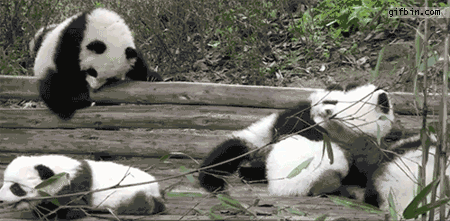Both the US and the UK have reduced their international aid budgets this year, resulting in a significant loss of soft power for both countries. Meanwhile, other countries like China are increasing their use of soft power and at least when it comes to China, they are not playing fair.
One form of soft power China employs is the use of Giant Pandas as a form of international diplomacy. And let’s be honest, who can resist the clumsy little buggers?
China has leased Giant Pandas to zoos around the world as part of its global image campaign. According to a study by Mattia Longhi and Caterina Morelli, this ‘panda diplomacy’ can lead to an increase in trade between China and the country that hosts these pandas.
However, this doesn’t happen automatically. Instead, it occurs only when the pandas give birth to a cub. Giant Pandas are famously hard to breed, which is one of the reasons why they are an endangered species. Some zoos are so desperate to get their pandas to breed that they have resorted to showing them panda pornography, a subgenre that has somehow attracted its own Wikipedia page.
If a panda cub is born, it is usually such big news that it becomes national news in both the host country and China. And this emphasis on a country in the media increases awareness among businesses of the potential trade relationships with the other country. The result is that in the months after a panda cub is born abroad, that country’s exports to China increase by 6% to 7% according to the study. Unfortunately, this is a short-lived effect, as the chart below shows, so I wouldn’t recommend the UK exports hedgehogs around the globe in the hope of becoming a more important trade partner.
Exports to China in the months after panda cub is born in a host country
Source: Longhi and Morelli (2025)
But it shows that soft power can have real-world effects – at least if you believe this study (and who can doubt these cuddly faces?).







Bear necessities?
“Send the PandAmbassadors”